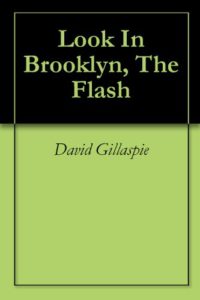Every writing coach, or anyone who calls themselves a writing coach, has a similar goal:
Get something down on paper, on a screen, a phone, just get it down.
It can be good, bad, indifferent, it doesn’t matter. Just get it down.
A good writing coach doesn’t emphasize the difficulty. Between coach and player, they already know how hard it can be.
What’s so hard about a first draft? This is me pumping up a writer:
Confidence is the key part. You have a story to tell, but how to tell it? Conventional wisdom says start at the beginning.
How easy is that? As easy as 1. 2, 3.
Think of the last book you started that was laid out in a chronological order. Got it? Now the big question: Did you finish it?
A series of events is not an engaging story, and by engaging I mean one that makes you turn the page, one that makes you stay up later to finish a chapter, one that makes you care.
The key force in a story makes the reader wonder what happens next. Why did something happen the way it did in one particular place? Could it happen again? Will it?
Turn that page, brother.
Writing Coach Game Plan
Some say to write drunk, but edit sober. Others say write like a water faucet with rusty pipes and write the rusty part, but keep the clear water writing.
One of my favorites is to do something worth writing about, or write about something worth doing.
Have you heard this one: I only write when I’m inspired, and I make sure I’m inspired every morning at 9 o’clock when I sit down at my desk.
Or: Water only flows when you turn on the faucet, it’s the same with writing.
Any of them work if you give them a chance. What does that look like?
Remember the last concert you attended where the musician played one note for two hours?
Me neither.
Imagine being that composer sitting at a piano, or plucking a guitar, and sounding the same note for two hours and calling it practice. Well, it’s practice, but what comes next?
It’s been said that all music is two notes, tension and release. The first note is tension, the second is release.
Does tension sound like suspense? Is release the same as resolution? Work it out.
The point here is getting past the first note. Think of it as a first draft.
First Draft Coach Says What?
A first draft of a story is like the one note concert. It’s the writer staring at a wall, just them and the wall. And the wall doesn’t care, so the writer has to.
A first draft can be organized in straight time, flashback, memory, notes, anecdotes, whatever it takes to get it down.
This is the fabric, the story fabric. An artist will turn the fabric into a beautiful gown, a suit, a costume. Or maybe a rag to clean up a mess.
You can’t edit what you don’t write. You can talk about it, sing about it, dream about it, but unless it’s on the page, you can’t make it better. And you can’t share it in a meaningful way.
Remember, the wall doesn’t care.
After a first draft comes a second, a third, a fourth. If this is you, consider hiring a professional editor. They know things about story and structure that sometimes seems written in shifting smoke.
From timing, to attention span, to the current market, they do work that borders on mysticism. You think your story is about one thing, but they reveal what it’s really about. They task the writer with reconciling both, linking them at the right places, and circling back at the right times as a reminder to the reader.
If it sounds hard, that’s because it is. Hard writing makes for easy reading, page turning momentum, and clarity.
What makes a reader drop a book? Bad writing, no suspension of disbelief, and biggest of all, the writer doesn’t make them care about their story.
We can do better.
Follow me for more writing advice.



